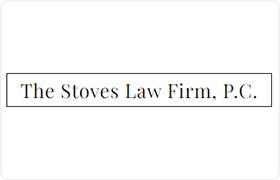Brownsboro White Collar Crime Lawyer, Alabama
Sponsored Law Firm
-
 x
x

Click For More Info:
-
The Stoves Law Firm, P.C.
9 Office Park Cir Suite 105 Birmingham, AL 35223» view mapCriminal Defense Legal Expertise You Can Rely On
The Stoves Law Firm, P.C. provides outstanding Criminal Defense and Litigation services to individuals and businesses throughout the State of Alabama.
800-818-9390
Not enough matches for Brownsboro White Collar Crime lawyer.
Below are all Brownsboro Criminal lawyers.
FREE CONSULTATION
CONTACTFREE CONSULTATION
CONTACT Jay Stoves Birmingham, AL
Jay Stoves Birmingham, AL Practice AreasExpertise
Practice AreasExpertise
